Turkey’s Deepening Inroads in Africa
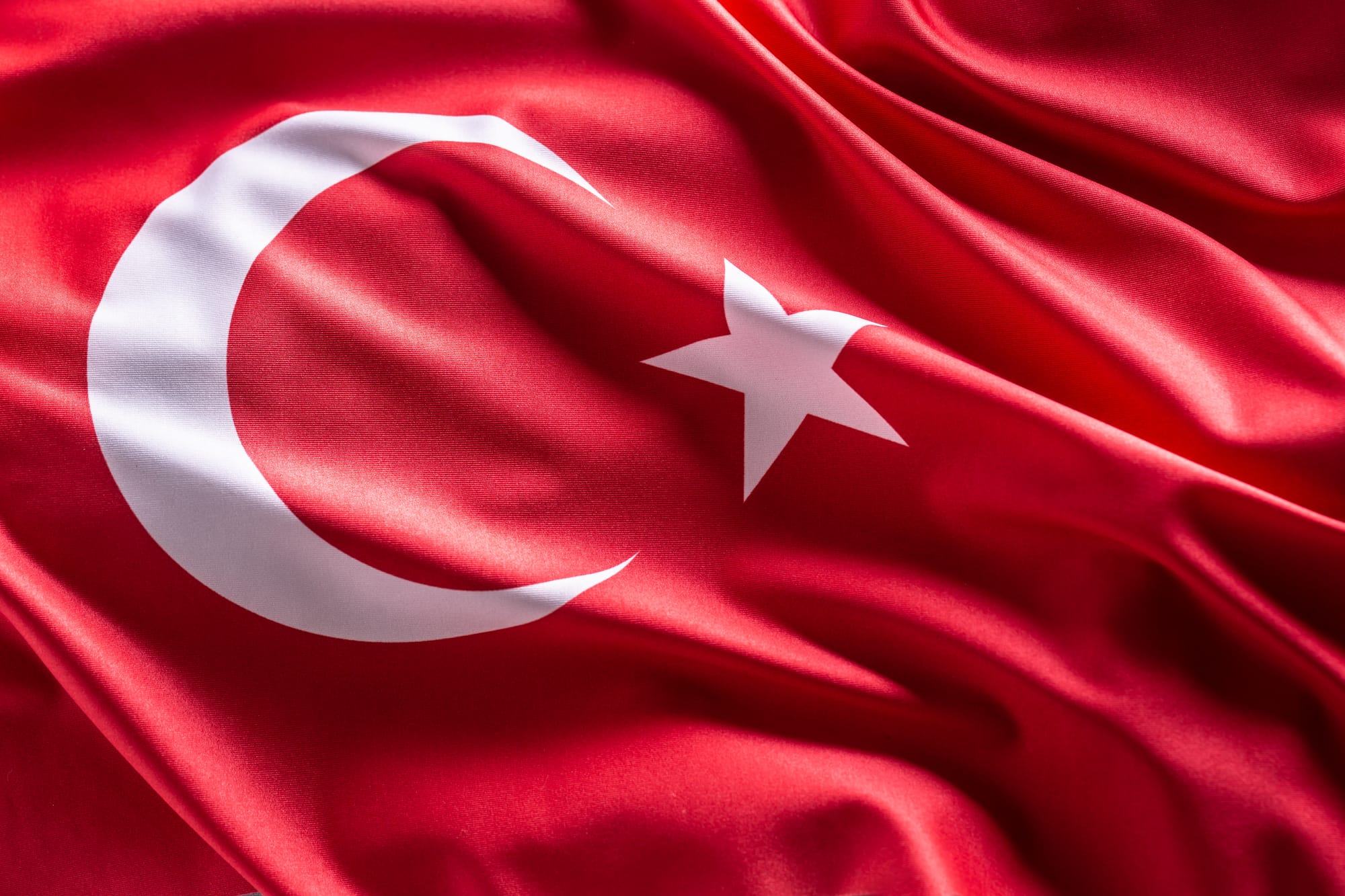
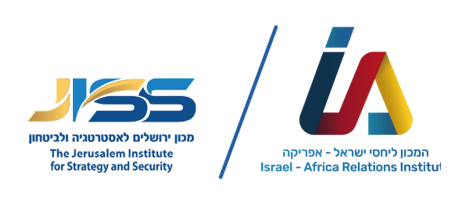
By Dr. Hay Eytan Cohen Yanarocak
Standing with his Somalian and Ethiopian counterparts Ahmed Moalim Fiqi and Taye Atske Selassie, Turkish Foreign Minister Hakan Fidan held a press conference at his headquarters in Ankara on July 1, where he proudly ushered in the beginning of a new era in Ethiopian-Somalian relations. As the two African countries expressed their readiness to resolve their differences through Turkey in a "Joint Ankara Declaration," they crowned Ankara as a key player in Eastern Africa [1]. Given Turkey’s increasing soft power and military presence in the Horn of Africa that can be traced back to the last two decades, Ankara’s success is not coincidental, it is the result of a persistent stance in its foreign policy.
Although Turkey has been diplomatically active on the continent since the official inauguration of its embassy in Addis Ababa in 1926, it refrained from making bold moves in Africa. The geographical distance and the low number of independent states at the time played a crucial role in this decision.
However, the Turkish stance vis-à-vis the continent began to change gradually. In 1998, when Ankara launched its “Action Plan for Opening to Africa,” Turkey had a total of twelve embassies across the entire continent. Despite all the ambitious declarations about deepening trade relations between Turkey and Africa, the coalition government led by then Prime Minister Bülent Ecevit did not take any significant steps in realizing its own political agenda. In other words, everything remained on paper.
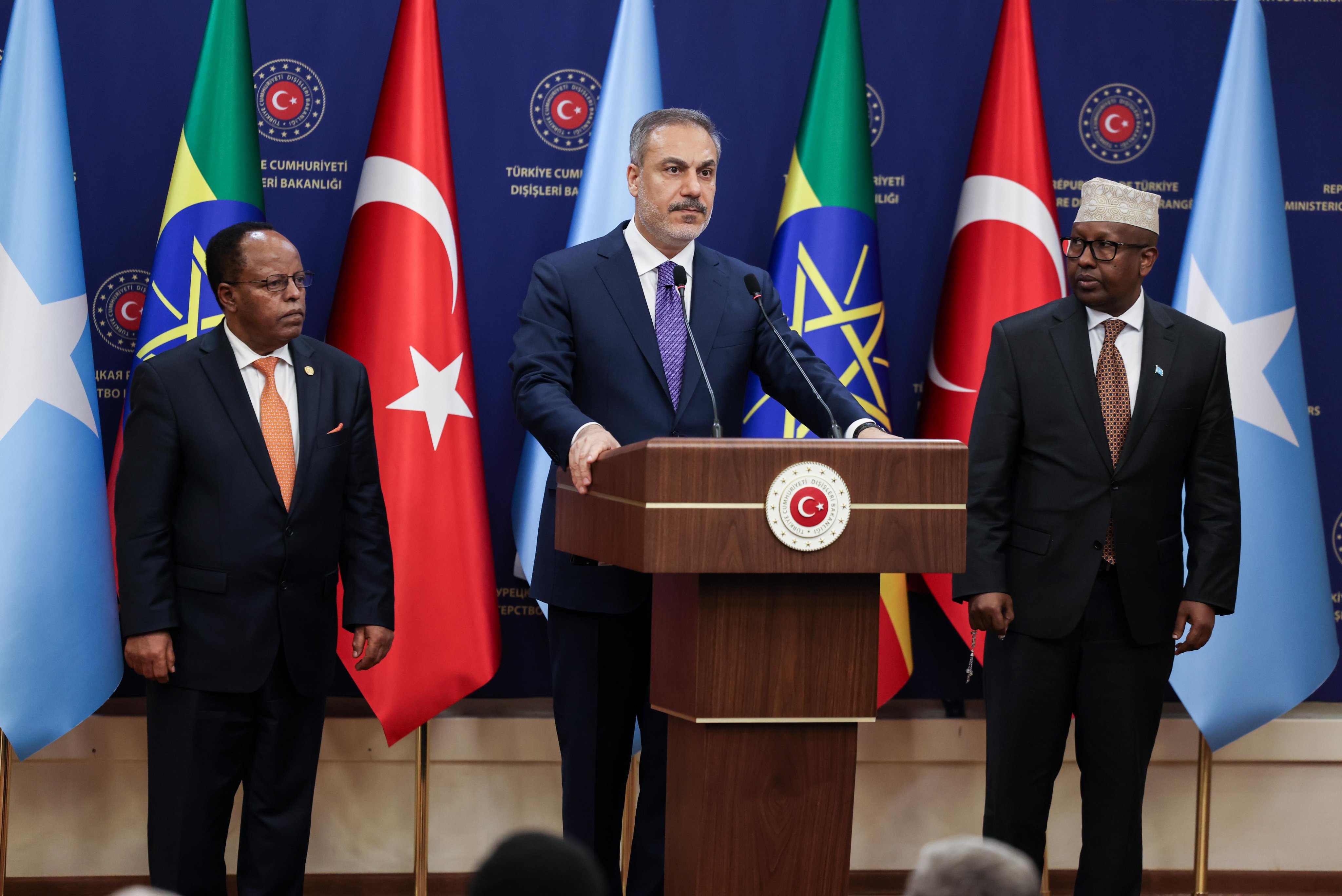
Turkish Foreign Minister Hakan Fidan hosted his counterparts Taye Atske Selassie (Ethiopia) and Ahmed Moallim Fiqi (Somalia) in Ankara on 1 July 2024. (Photo: @MFATurkiye)
The New Era
This trend fundamentally changed after Recep Tayyip Erdoğan came to power, first as prime minister in 2003 and later as president in 2014. Immediately after taking office, Erdoğan began to implement and materialize his predecessors’ policies. In this context, Turkey declared 2005 as the "Year of Africa." That same year, Erdoğan made his first visit to the continent. Since taking control of Turkey, Erdoğan has visited 33 different African states.[2] Unsurprisingly, the personal connections he made during his visits were fruitful. In 2008, the African Union declared Turkey an "observer state and strategic partner."[3] Indeed, thanks to these closening ties, in 2009, African countries supported Ankara in its successful bid for a non-permanent seat on the United Nations Security Council [4].
In the wake of this growing cooperation, Turkey decided to inaugurate additional embassies on the continent. As of July 2024, the number of Turkish embassies in Africa stands at 44 [5]. Considering that there are 54 states in Africa, this is an impressive number. According to Turkish sources, Ankara now aims to increase this number even further to a total of 49 [6]. It is important to highlight that these engagements are not one-sided. For example, according to data from the Turkish Foreign Ministry, the number of African embassies in Ankara has risen from 10 (2008) to 38 (2024) [7].
Indeed, by attributing great importance to “people to people relations,” Turkey began to deepen its involvement on the continent. Turkish non-governmental organizations launched humanitarian aid missions in Africa. At the same time, the Turkish Red Crescent, the Turkish Directorate of Religious Affairs (Diyanet), Yunus Emre Cultural Institutes, Presidency for Turks Abroad and Related Communities, Disaster and Emergency Management Presidency of Turkey (AFAD) and the Turkish Cooperation and Coordination Agency (TİKA) began investing in improving the lives of African citizens. Turkey also operates in the medical, religious, and renovation [of historic buildings] sectors.[8]
Turkey in East Africa
Somalia became the symbol of Turkey's penetration into Africa. In 2011, while the rest of the world ignored Somalia, Erdoğan's Turkey decided to lend a hand to this failing state located in the Horn of Africa. That year, Turkey reopened its embassy in the Somali capital, Mogadishu. Additionally, Erdoğan – at the time Turkey’s prime minister – made a historic official visit to Mogadishu, ending Somalia's international isolation. Moreover, Ankara decided to invest one billion dollars in Somalia[9]. Within this substantial budget allocation, Turkey began working on infrastructure projects such as building schools, hospitals and transportation services. For example, Turkey re-built Mogadishu's international airport and seaport and restored them to full operational capability [10].
Turkish Airlines started direct flights between Istanbul and Mogadishu creating an air bridge between Turkey and Somalia. This policy is not limited to Somalia. Today Turkish Airlines flies to 51 different destinations in Africa, including Mogadishu.[11]
In addition to impacting the daily lives of Africans, Turkey also ensures it maintains its popularity across the continent. Through the state-owned Turkish broadcaster TRT, Ankara launched its own propaganda channel, TRT Afrika. In addition to English and French, TRT Afrika also broadcasts in Swahili (spoken in East African countries) and Hausa (spoken in West African countries).[12]
Turkey's penetration is not limited to soft power projections. Starting in 2007, Turkey decided to use its military power as a tool to deepen its involvement in Africa. Alongside its massive investments and the establishment of an air bridge between the countries, Ankara inaugurated its largest overseas military base in Somalia. As part of this move, with the deployment of two hundred Turkish soldiers to the new military base, Ankara began training the local Somali army at the base in Mogadishu and some Somali soldiers were sent to Turkey for advanced training. This led to the establishment of the elite Somali unit "Gorgor" (Eagles). Turkey used these special forces to combat the threat posed by the terrorist organization Al-Shabaab.[13]
Beyond training, Turkey also engaged in human and cultural interactions with the Somali soldiers. For example, during their stay in Turkey, the Somali soldiers were introduced to Turkish culture through Turkish language courses. Through these human and cultural connections, Turkey invests in the future. Ankara seems to hope that someday, some of these soldiers will assume positions of power in the Somali government and thus become natural allies of Ankara.[14]
Thanks to the pretext of "providing training to the Somali army," Ankara continues to increase its military presence in the Horn of Africa. Alongside tanks and UAVs sent to the base when it was established, Ankara recently deployed a warship in the waters of the Horn of Africa.
To justify this military presence, Somalia and Turkey signed a defense and economic cooperation agreement in February 2024. This agreement gave Ankara a formal legal basis to intervene in the affairs of the Horn of Africa.[15]
We should recall here the Somali government’s public invitation to Ankara in 2020 to explore hydrocarbon resources in the Indian Ocean and the Gulf of Aden.[16] This call was finally turned into reality on March 7, 2024 when the two countries signed an oil and gas cooperation agreement [17]. Moreover, on July 19, both countries signed another agreement that paved the way for Turkey to conduct seismic exploration in three different blocs. In September, Turkey’s seismic exploration vessel Oruç Reis will sail to Somalia to carry out the mission [18]. In hindsight, we can surmise that the timing of the Turkish-Somali agreement was not coincidental. On January 1, Ethiopia signed a cooperation agreement with Somaliland, which seeks official independence from Somalia. As part of the agreement, Somaliland gained recognition from Ethiopia and, in return, granted Addis Ababa the right to use the port of Berbera in the Gulf of Aden. This agreement allowed landlocked Ethiopia to develop a more independent foreign policy, less reliant on its neighbors. However, at the same time this agreement blatantly violated Somalia's sovereignty and territorial integrity [19]. At this exact point, Turkey stepped in and intervened in the situation between Ethiopia and Somalia, as mentioned above.
It is noteworthy that Turkey and Ethiopia are ostensibly allies. In 2021, Addis Ababa and Ankara signed an agreement for the sale of Bayraktar UAVs. The signing of the agreement immediately impacted import-export data. Before the agreement, the volume of military trade between the two countries stood at only $203,000. After the delivery of the UAVs, this figure jumped to $51 million [20]. This deal had far-reaching consequences. Thanks to the acquisition of the Turkish UAVs, Ethiopia managed to defeat the rebel forces known as the Tigray People’s Liberation Front. (TPLF).[21].
With the TPLF lacking advanced electronic warfare equipment and air defense systems, Ethiopia was able to declare victory in a short time. The Bayraktar’s success in Ethiopia paved the way for Ankara to pursue "drone diplomacy" across the continent. Alongside Ethiopia, countries such as Niger, Burkina Faso, Mali [22], Djibouti [23], Somalia [24], Morocco [25], Libya [26] and Togo [27] have purchased Bayraktars. Given the Bayraktar’s relatively low price and the fact that Turkey does not ask its clients questions about human rights and democracy, the popularity of Turkish UAVs is only growing.
Through well calculated long-term investments, both in military and soft power tracks, Ankara’s long-term grand strategy created and deepened the dependency of several African countries on Turkey. Having turned both Ethiopia and Somalia into its allies, Ankara manages to maximize its own interests in the east of the continent.
Turkey in North Africa and the Sahel
In addition to its activities in East Africa, Turkey has become an influential player in the north of the continent. In 2019, Ankara regarded the Libyan civil war as a golden opportunity to make inroads in this region. However, contrary to the Somalian example, this time Libya did not constitute the main drive of Turkey’s aspirations.
“The Blue Homeland” naval doctrine which was developed by the admirals of the Turkish Navy to expand Turkey’s territorial waters in the Eastern Mediterranean at the expense of Greece and Cyprus played a crucial role in Turkey’s penetration into Libya.
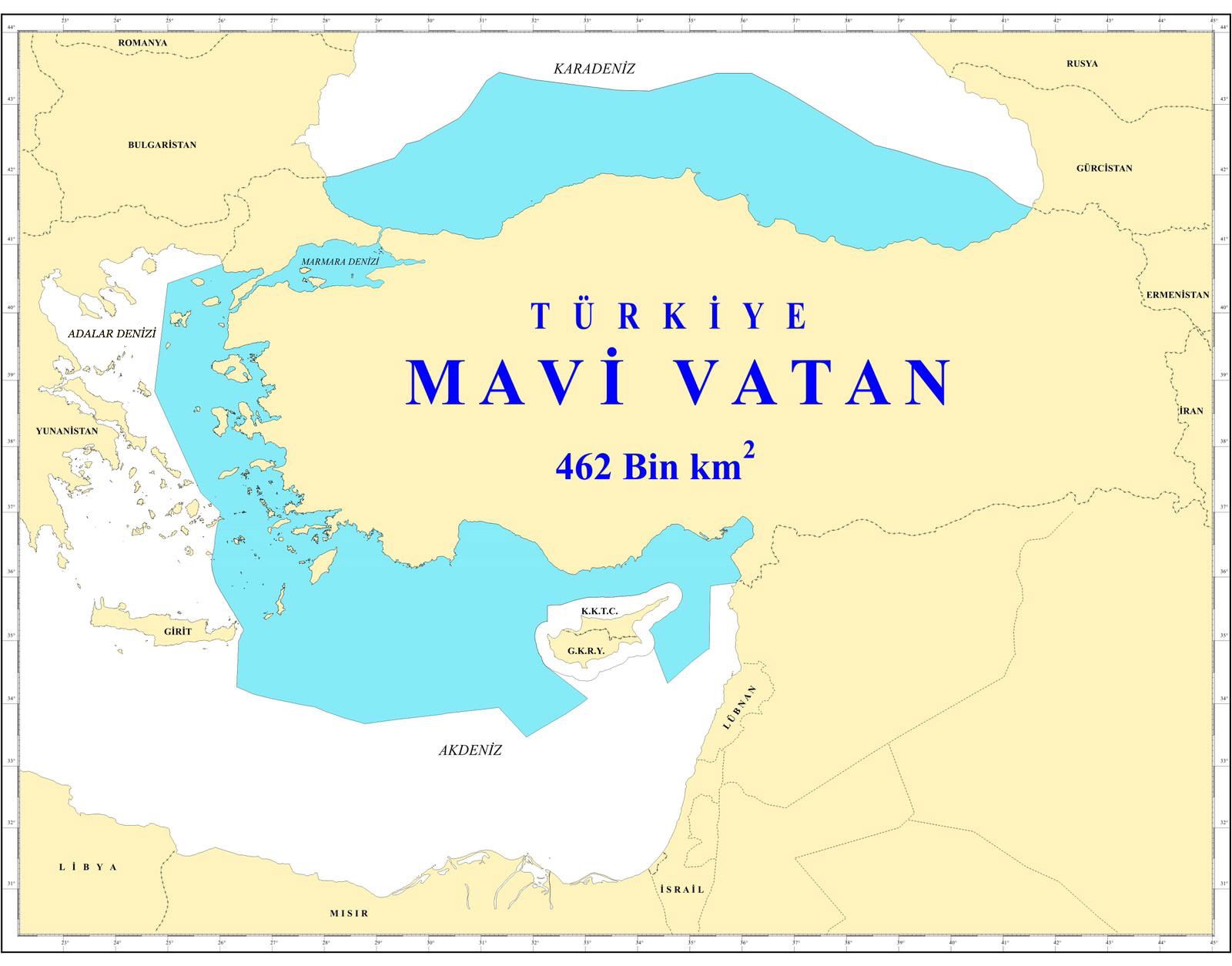
"The Blue Homeland" map, created by Cihat Yaycı, Source available HERE.
As it had been excluded from the East-Med natural gas pipeline project – initiated by Greece, Cyprus and Israel – Ankara began to look for ways to prevent these three countries from launching their ambitious project. Therefore, to cut the naval contiguity between Greece’s Crete Island and Cyprus, Ankara expanded its territorial waters significantly and openly declared the European Union’s “Seville Map” [28] as void. By doing so, Ankara calculated its territorial waters from Turkish shores – disregarding the existence of the Greek islands and the United Nations Convention Law of the Seas (UNCLOS). Thus, the Greek islands turned into enclaves in Turkish waters.
In order to have a legal basis for its naval territorial claims Ankara took a very creative step and signed a maritime de-limitation treaty with Libya’s Government of National Accord (GNA) – which was recognized as the sole legitimate government of Libya by the UN. It should also be noted that the agreement ignored Greek and Cypriot claims based on the Seville Map. Under siege by General Khalifa Haftar’s Libyan National Army (LNA), the GNA had no choice but to acquiesce to Ankara’s demands to ensure its survival. On November 27, 2019, the GNA and Turkey signed a “Security and Military Cooperation Agreement” [29]. This agreement provided Erdoğan with the necessary pretext to intervene militarily in the Libyan civil war. Certainly, the survival of the maritime delimitation agreement was the most important objective for Turkey. Therefore, to secure the agreement’s survival, on January 2, 2020, the Turkish parliament ratified the decision to intervene militarily in Libya.[30]
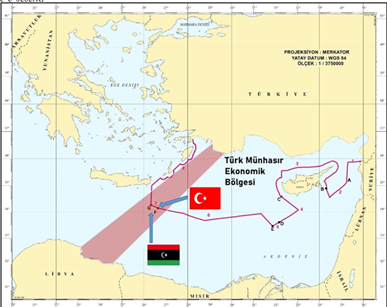
Map of the Turkey-Libya Agreement and the Turkish Exclusive Economic Zone, Eastern Mediterranean, Source: Dmerttt
Thanks to active Turkish military support shipments through its “ghost ships” [31] from its Mersin port to Libya’s Tripoli – Ankara managed to change the course of events. The GNA forces, backed by armed combat vehicles, cannons, howitzers, anti-aircraft guns [32] and especially by the Turkish Bayraktar TB-2 UAVs [33] thwarted the LNA’s attacks on Tripoli and managed to push Haftar’s forces back to the east. Despite Turkey’s denial, the dispatch of the Syrian opposition fighters to Libya to combat the LNA also played a crucial role in the GNA’s achievements [34].
In October 2020, a cease-fire between the belligerents was reached [35]. In the aftermath of the agreement, the formation of the Libyan Political Dialogue Forum in November 2020 paved the way for the establishment of the National Unity Government headed by Abdul Hamid al-Dbeibeh from the Turkish-controlled port of Misrata, strengthening Ankara’s position in post-war Libya. This advantageous position allowed Ankara to engage in dialogue with the LNA. According to a leading Turkish think tank, Turkey is examining the possibility of inaugurating a consulate in the LNA controlled city of Benghazi in eastern Libya.[36]
As Turkey solidifies its stance in Libya it is also making inroads into the Sahel region. Since Ankara has already acquired a bridgehead in Libya, it seems that Erdoğan began to see Niger – Libya’s southern neighbor – in a more strategic manner.
Turkish-Nigerien relations were officially established in 1967. However, until the launch of Turkey’s proactive Africa policy, the two countries had no significant interaction. In 2012, Turkey inaugurated its embassy in the Nigerien capital, Niamey. Niger reciprocated and inaugurated its embassy in Ankara later that year. Since then, President Erdoğan has formed personal ties with Nigerian leaders – including the ousted president, Mohamed Bazoum [37].
The close ties have been expressed in bilateral cooperation agreements in different fields such as military training, health, mining, energy, trade, forestry and the defense-industry [38] – including the purchase of the Bayraktar TB-2 UAVs by Niger in 2022 [39].
Moreover, through soft power agents such as TİKA and the Maarif (Education) Foundation, Ankara has provided educational equipment, scholarships and vocational training, livestock and agricultural equipment, modernization and furnishing of equipment for medical centers, installation of water wells, opening of social centers and the provision of food and clothing assistance.[40]
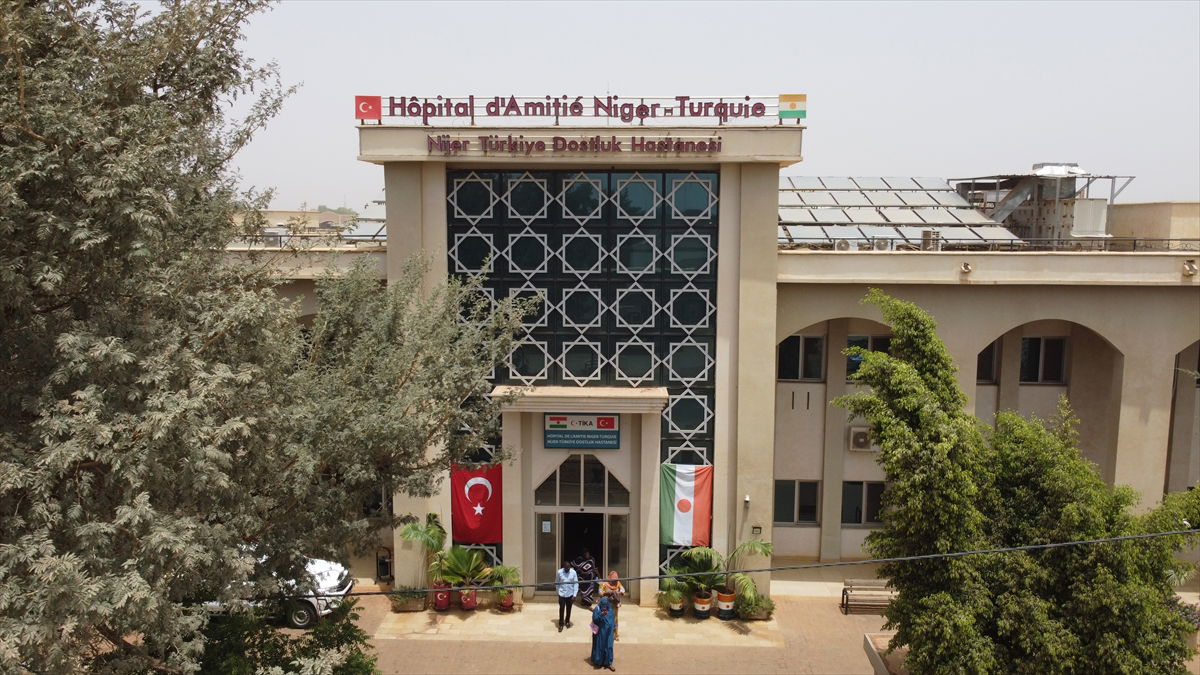
Niger-Turkey Friendship Hospital, TİKA's biggest project in Niger, established in 2019. Source: SOL
These “investments” paid off as Turkey managed to preserve its good relations with Niger even after the military coup d’etat that took place on July 26, 2023.
Immediately after seizing power, General Abdourahamane Tchiani annulled Niger’s bilateral agreements with France and the United States as both countries failed to defeat the threat posed by the Al-Qaeda affiliated Jama’at Nasr al-Islam wal-Muslimin (JNIM). Tchiani expelled French troops from the country last year and American forces are scheduled to leave the country no later than September 15, 2024.[41]
Erdoğan viewed this as a golden opportunity to make further inroads in Niger and repeat his country’s successful “Somalia model.” On July 17, 2024, Turkey sent a high-ranking delegation headed by Foreign Minister Hakan Fidan to Niamey. The delegation included Minister of Defense Yaşar Güler, Minister of Energy Alparslan Bayraktar, Director of the Turkish National Intelligence Agency (MIT) İbrahim Kalın, Deputy Minister of Trade Volkan Ağar and the Director of the Turkish Defense Industries Haluk Görgün.[42]
The delegation further deepened bilateral relations as Turkey openly offered its assistance to combat terrorism in Niger [43]. In other words, Turkey openly declared its intention to turn Niger into a second Somalia.
However, given Niger’s rich uranium reserves it seems that, Niger may become a more important “partner” than Somalia. Niger possesses Africa’s highest-grade uranium ores and is the world’s seventh-largest uranium producer. With an impressive 5% of the world's uranium resources, Niger ranks among the top 10 suppliers globally. Bearing this in mind, some media outlets claim that Turkey's recent involvement in Niger is primarily driven by Ankara’s desire to acquire uranium. If true, Ankara will end its dependency on Russia, which is supposed to provide uranium for Turkey’s Akkuyu nuclear reactor [44]. Of course, such a move will inevitably raise concerns regarding Turkey’s nuclear program. As expected, Turkey’s “Center for Combatting Disinformation” denied these claims and specified that Ankara will continue to abide by the treaty signed with Russia’s Rosatom State Atomic Energy Corporation. [45]
Conclusion
As we can see, Ankara’s decisive long-term Africa strategy has paid off. Thanks to its military presence and soft power engines, Turkey has become a key player in the east of the continent – especially in the Horn of Africa. Indeed, the ability to lead to a change in the policies of East African states is the apex of Turkish influence in East Africa. Therefore, Fidan's recent press conference can indeed be interpreted as a Turkish demonstration of power and a major diplomatic success for Ankara’s foreign policy. Considering that another summit between the Turkish, Somalian and Ethiopian foreign ministers is planned again in Ankara on September 2, Turkey will further enhance its role in the East Africa.
As far as Turkey’s penetration in Libya is concerned, though initially Ankara’s main drive was focused on its desire to strengthen its position in the Eastern Mediterranean, with its active participation in the Libyan Civil War, Ankara has become a crucial actor in shaping this failed state’s future.
In addition to Libya, as an experienced player in Africa, nowadays Ankara is heavily involved in Niger. If indeed Ankara can turn Niger into a “second Somalia” – especially if the uranium allegations are true – then it seems that to secure its access to this landlocked region Turkey’s presence in Libya will be perpetual. Inevitably this access will be a two-way street. By making a deal with Turkey via Libya, Niger will acquire a bridgehead in the Mediterranean – which will inevitably bring prosperity to its land-locked economy. Seeing the immediate consequence of this alliance will most likely put other Sahel countries such as Burkina Faso, Mali and Chad under Turkish influence.
Bearing in mind the above, apart from its soft power and military assistance, I argue that the most important component of Turkey’s success story is “respect.” Unlike the superpowers which approached African countries with their colonial, superior ethnocentric attitude, Turkey with its similar religious and cultural codes treats Africans – especially Muslim-African countries – with respect. Africans feel that. This is the secret of Turkey’s success.
Dr. Hay Eytan Cohen Yanarocak is the Turkey expert at the Jerusalem Institute for Strategy and Security (JISS) and the Moshe Dayan Center for Middle Eastern and African Studies (MDC) at Tel Aviv University. He received his Ph.D. from Tel-Aviv University’s School of History and is a lecturer at the same institution as well as the Hebrew University of Jerusalem, Ariel University, and Ben Gurion University of the Negev. Dr. Cohen Yanarocak is the editor of Turkeyscope: Insights on Turkish Affairs. In May 2015, he was awarded the Dan David Prize for Scholarship in the category of “Past: Retrieving the past, historians and their sources.” He is the author of the book The Evolution of the Turkish School Textbooks from Atatürk to Erdoğan from Lexington Books, Rowman & Littlefield in September 2022.
You are welcome to watch Dr. Hay's presentation on "Turkey’s Policy in Africa and its Implications for Israel", which was given on July 2, 2024. The presentation was part of the "Africa and Israel: Building Strategic and Economic Bridges" conference, held at Tel Aviv University, in cooperation with the Israel-Africa Relations Institute, JISS and Tel Aviv University.
The research for this article was co-sponsored by the Israel-Africa Relations Institute (IAI) and the Jerusalem Institute for Strategy and Security (JISS)
A PDF version of this article can be downloaded below.
[1] “Dışişleri Bakanı Fidan, Somali ve Etiyopya Dışişleri Bakanları ile görüştü”, Milliyet, July 2, 2024, https://www.milliyet.com.tr/gundem/disisleri-bakani-fidan-somali-ve-etiyopya-disisleri-bakanlari-ile-gorustu-7149583 [Accessed: July 14, 2024]
[2] “Türkiye’nin Afrika’daki etki alanı genişliyor”, DW, https://www.dw.com/tr/t%C3%BCrkiyenin-afrikadaki-etki-alan%C4%B1-geni%C5%9Fliyor/a-60867691 [Accessed: July 14, 2024]
[3] “Afrika Birliği”, Turkey MFA https://www.mfa.gov.tr/afrika-birligi.tr.mfa [Accessed: July 14, 2024]
[4] Berdal Aral, “Turkey in the UN Security Council: Its Election and Performance”, Insight Turkey, Vol. 11, No. 4, pp.151-168 https://www.jstor.org/stable/26331120 [Accessed: July 15, 2024]
[5] “Türkiye-Afrika İlişkileri”, Turkey MFA, https://www.mfa.gov.tr/turkiye-afrika-iliskileri.tr.mfa [Accessed: July 15, 2024]
[6] “Türkiye'nin 43 Afrika ülkesinde büyükelçiliği var”, TRT Haber, October 16, 2021, https://www.trthaber.com/haber/gundem/turkiyenin-43-afrika-ulkesinde-buyukelciligi-var-617606.html [Accessed: July 15, 2024]
[7] “Türkiye-Afrika İlişkileri”, Turkey MFA, https://www.mfa.gov.tr/turkiye-afrika-iliskileri.tr.mfa [Accessed: July 15, 2024]
[8] Orkun Tarlanoğlu, “Türkiye’nin Afrika Politikasının Kamu Diplomasisi ve Sivil Toplum Kuruluşları Çerçevesinde İncelenmesi”, Dumlupınar Üniversitesi Sosyal Bilimler Dergisi, No:79, pp.1-22, DOI: 10.51290/dpusbe.1300317, https://dergipark.org.tr/tr/download/article-file/3156482 [Accessed: July 15, 2024]
[9] “Cumhurbaşkanı Erdoğan: Son 10 yılda Somali'ye yaptığımız insani ve kalkınma yardımlarının tutarı 1 milyar doları aştı”, AA, July 6, 2022, https://www.aa.com.tr/tr/gundem/cumhurbaskani-erdogan-son-10-yilda-somaliye-yaptigimiz-insani-ve-kalkinma-yardimlarinin-tutari-1-milyar-dolari-asti/2631426 [Accessed: July 15, 2024]
[10] “Türkiye TİKA aracılığıyla Somali'nin makus talihini değiştiriyor”, AA, January 8, 2020,https://www.aa.com.tr/tr/dunya/turkiye-tika-araciligiyla-somalinin-makus-talihini-degistiriyor/1692181 [Accessed: July 15, 2024]
[11] “THY Afrika'da en fazla noktaya uçan hava yollarından biri”, Sabah, July 28, 2017, https://www.sabah.com.tr/ekonomi/2017/07/28/thy-afrikada-en-fazla-noktaya-ucan-hava-yollarindan-biri [Accessed: July 15, 2024]
[12] “TRT Afrika,” TRT Afrika, https://trtafrika.com/ [Accessed: July 15, 2024]
[13] “What is Turkey’s ambition in Africa? - The Global Jigsaw podcast, BBC World Service”, YouTube, May 27, 2024, https://www.youtube.com/watch?v=1cP1jLczvM0 [Accessed: July 15, 2024]
[14] “"Somali Kartalları" Türk askeri personel tarafından yetiştiriliyor”, TRT Haber, August 23, 2022, https://www.trthaber.com/foto-galeri/somali-kartallari-turk-askeri-personel-tarafindan-yetistiriliyor/49663/sayfa-7.html [Accessed: July 15, 2024]
[15] “Türkiye ve Somali arasında imzalanan güvenlik anlaşması neden tartışma yarattı?”, BBC Türkçe, February 23, 2024, https://www.bbc.com/turkce/articles/czk5zx9474eo [Accessed: July 15, 2024]
[16] “Turkey sets its sights on the Horn of Africa”, DW, January 22, 2020, https://www.dw.com/en/turkey-sets-its-sights-on-the-horn-of-africa/a-52111261 [Accessed: July 15, 2024]
[17] “Turkey and Somalia strike an oil and gas cooperation deal for the Horn of Africa nation” , AP News, March 7, 2024, https://apnews.com/article/turkey-somalia-sign-oil-gas-agreements-312fcdf58789767f94b6c36a3444faec [Accessed: July 15, 2024]
[18] “Afrika ile enerjide dev adım”, July 19, 2024, Yeni Şafak, https://www.yenisafak.com/ekonomi/afrika-ile-enerjide-dev-adim-4633862 [Accessed: July 21, 2024]
[19] “Ethiopia and a breakaway Somali region sign a deal giving Ethiopia access to the sea, leaders say”, AP News, January 2, 2024, https://apnews.com/article/somaliland-ethiopia-agreement-security-sea-access-f00ef41ece46c4618b007385e4d476a6 [Accessed: July 15, 2024]
[20] “Reuters: Türkiye, Etiyopya ve Fas ile TB2 silahlı insansız hava aracı sözleşmeleri imzaladı”, Euronews, October 14, 2021, https://tr.euronews.com/2021/10/14/reuters-turkiye-etiyopya-ve-fas-ile-tb2-silahl-insans-z-hava-arac-sozlesmeleri-imzalad [Accessed: July 15, 2024]
[21] “Bayraktar TB2 Etiyopya'da savaşı tersine çevirdi! Tigray güçleri gerilemeye başladı”, TR Haber, April 4, 2024, https://www.trhaber.com/savunma/bayraktar-tb2-etiyopyada-savasi-tersine-cevirdi-tigray-gucleri-gerilemeye-basladi-h102150.html [Accessed: July 15, 2024]
[22] “Africa, the new playground for drone exporters”, Le Monde, January 5, 2024, https://www.lemonde.fr/en/international/article/2024/01/05/africa-the-new-playground-for-drone-exporters_6405337_4.html#:~:text=Niger%2C%20Burkina%20Faso%20and%20Mali,drones%20from%20another%20Turkish%20manufacturer. [Accessed: July 15, 2024]
[23] “Now official: Turkey’s Bayraktar TB2 spotted in military parade in Djibouti”, Daily Sabah, June 27, 2022, https://www.dailysabah.com/business/defense/now-official-turkeys-bayraktar-tb2-spotted-in-military-parade-in-djibouti [Accessed: July 15, 2024]
[24] “Türkiye Somali'ye SİHA verdi”, Rudaw, September 26, 2022, https://www.rudaw.net/turkish/middleeast/turkey/26092022 [Accessed: July 15, 2024]
[25] “Turkey expands armed drone sales to Ethiopia and Morocco – sources”, Reuters, October 14, 2021, https://www.reuters.com/world/middle-east/turkey-expands-armed-drone-sales-ethiopia-morocco-sources-2021-10-14/ [Accessed: July 15, 2024]
[26] “Libya’s deadly game of drones”, Times Aerospace, https://www.timesaerospace.aero/features/defence/libyas-deadly-game-of-drones [Accessed: July 15, 2024]
[27] “'Batı Afrika ülkesi Togo Türkiye'den Bayraktar TB2 satın aldı'”, Mepa News, July 14, 2022, https://www.mepanews.com/bati-afrika-ulkesi-togo-turkiyeden-bayraktar-tb2-satin-aldi-53657h.htm [Accessed: July 15, 2024]
[28] Named after a study commissioned by the EU and conducted by the University of Seville, the map relies on the UN Convention on the Law of the Sea (UNCLOS, 1982), and therefore significantly expands Greek and Cypriot naval territories at Turkey’s expense. UNCLOS’ recognition of island continental shelves as equivalent to mainland continental shelves, shrinks Turkish naval territorial waters in favor of the Greek islands near the Turkish coast. Therefore, unsurprisingly, Turkey did not become a signatory of UNCLOS.
[29] “Libya'nın Siyasi Görünümü”, MFA Turkey, https://www.mfa.gov.tr/libya-siyasi-gorunumu.tr.mfa [Accessed: July 21, 2024]
[30] “Libya tezkeresi Meclis'ten geçti, Genel Kurul'da neler yaşandı?”, BBC Türkçe, January 2, 2020, https://www.bbc.com/turkce/haberler-turkiye-50978212 [Accessed: July 21, 2024]
[31] After mooring off the Libyan coast, the ships’ transponders are switched off and instead of docking and unloading their cargo at their declared destination, the ships unload at GNA-controlled Libyan ports.
[32] “Turkey's Ghost Ships - BBC Africa Eye documentary,” https://www.youtube.com/watch?v=yW8f9ptdY_o , March 26, 2020, [Accessed: July 21, 2024]
[33] “Libya semalarında Türkiye ile Arap ülkelerinin bilek güreşi”, Euronews, December 22, 2019, https://tr.euronews.com/2019/12/22/libya-ankara-ve-abu-dabi-nin-sahne-arkasindaki-bilek-guresi-drone-savasi [Accessed: July 21, 2024]
[34] Hay Eytan Cohen Yanarocak and Jonathan Spyer, “Turkish Militias and Proxies”, JISS, January 21, 2021, https://jiss.org.il/en/yanarocak-spyer-turkish-militias-and-proxies/ [Accessed: July 21, 2024]
[36] Fuat Emir Şefkatli, “Son Dönem Türkiye-Libya İlişkileri Işığında Bakan Fidan’ın Trablus Ziyareti”, ORSAM, February 12, 2024, https://www.orsam.org.tr/tr/son-donem-turkiye-libya-iliskileri-isiginda-bakan-fidanin-trablus-ziyareti/ [Accessed: July 21, 2024]
[35] “Libya'nın Siyasi Görünümü”, MFA Turkey, https://www.mfa.gov.tr/libya-siyasi-gorunumu.tr.mfa [Accessed: July 21, 2024]
[37] “Türkiye-Nijer İlişkileri”, MFA Turkey, https://www.mfa.gov.tr/turkiye-nijer-cumhuriyeti-siyasi-iliskileri.tr.mfa [Accessed: July 21, 2024]
[38] “Türkiye'den kritik zamanda Nijer çıkarması”, AA, July 17, 2024, https://www.aa.com.tr/tr/analiz/turkiyeden-kritik-zamanda-nijer-cikarmasi/3277541 [Accessed: July 21, 2024]
[39] Nijer’e Bayraktar TB2 SİHA teslimatı, Defence Turk, May 21, 022, https://www.defenceturk.net/nijere-bayraktar-tb2-siha-teslimati [Accessed: July 21, 2024]
[40] “Türkiye'den Nijer'e 'çıkartma': Ne oldu, ne oluyor?”, Sol, July 19, 2024, https://haber.sol.org.tr/haber/turkiyeden-nijere-cikartma-ne-oldu-ne-oluyor-394252 [Accessed: July 21, 2024]
[41] “US troops to leave Niger by mid-September”, BBC, May 19, 2024, https://www.bbc.com/news/articles/czkk7g1vj31o [Accessed: July 21, 2024]
[42] “Afrika’daki Türkiye-Fransa çekişmesinde son sahne: Nijer”, Yetkin Report, July 19, 2024, https://yetkinreport.com/2024/07/19/afrikadaki-turkiye-fransa-cekismesinde-son-sahne-nijer/ [Accessed: July 22, 2024]
[43] “Afrika’daki Türkiye-Fransa çekişmesinde son sahne: Nijer”, Yetkin Report, July 19, 2024, https://yetkinreport.com/2024/07/19/afrikadaki-turkiye-fransa-cekismesinde-son-sahne-nijer/ [Accessed: July 22, 2024]
[44] “Turkey's spy chief, top ministers visit Niger to secure Uranium supplies”, First Post, July 17, 2024, https://www.firstpost.com/world/turkey-top-ministers-visit-niger-to-secure-uranium-supplies-13794161.html [Accessed: July 22, 2024]
[45] @dmmiletisim, X, July 18, 2024, https://x.com/dmmiletisim/status/1813895911732335012 [Accessed: July 22, 2024]